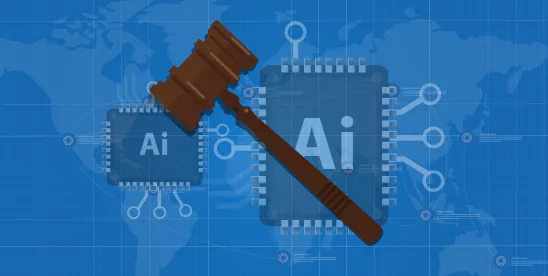Last year, in the matter of Mata v. Avianca, Inc., the lawyers for the plaintiff submitted briefs to a federal court judge created through ChatGPT – a generative artificial intelligence (GAI) tool – in support of their positions. The submission by Mata’s counsel contained fabricated citations and legal decisions. In the court’s opinion at 678 F.Supp.3d 443 (S.D.N.Y. 2023) (a real cite), the judge held that the lawyers “abandoned their responsibilities when they submitted non-existent judicial opinions with fake quotes and citations.” Even worse, as the judge explained, “the lawyers continued to stand by the fake opinions even after judicial orders called their existence into question.” The lawyers plainly did not understand the limitations of the GAI tool they were using.
Federal Opinion 512 Proposes New Standards
Last summer, likely in response to the Mata case and similar matters, the American Bar Association (ABA) issued Formal Opinion 512 regarding the ethical obligations of lawyers who use GAI tools. The fifteenpage guidance identifies the many ways in which the Rules of Professional Conduct might impact the use of GAI in a lawyer’s practice and offers new standards to help lawyers comply with their ethical obligations under these rules. In particular, the formal ethics opinion focuses on the need for attorney competence in using GAI, the protection of client information submitted through a GAI tool, proper communication with the client regarding the usage of a GAI tool in connection with the legal representation, the supervision of others within the law firm who may use GAI, and candor regarding tribunal obligations, like those considered by the court in the Mata case.
The key takeaway from the ABA formal opinion is that any lawyer using GAI must understand the capabilities and limitations of the tool. Thus, in a nutshell, a lawyer who uses a GAI tool cannot reasonably rely upon the accuracy, completeness, and validity of any GAI-generated content. Instead, the material must be carefully evaluated and tested before it is used, whether to communicate legal advice to a client or others or in briefings submitted to a court, for example. The ABA opinion notes, “Lawyers may not abdicate their responsibilities by relying solely on a GAI tool to perform tasks that call for the exercise of professional judgment.”
Due Care Standards Require Ongoing Education
While a lawyer must become competent and fully understand the benefits and risks of using GAI, the lawyer’s efforts to understand its limits and capabilities must be continuous as GAI tools develop and change over time. As the court in Mata noted, good lawyers rely on others, including junior associates or law students, for example. A good lawyer cannot use their work product without vetting it first. While the Mata sanctions decision was decided under Rule 11 of the Federal Rules of Civil Procedure, the new ABA formal ethics opinion provides a novel framework for assessing lawyer due care when using GAI.
As most lawyers who defend lawyers know, an ABA formal opinion, while not determinative, can influence a court or jury’s decision on what constitutes the exercise of due care in performing legal services for a client. And so, when considering whether a lawyer’s conduct has fallen below the standard of due care, a lawyer’s failure to comply with the standards set forth by attorney industry groups like the ABA may be permitted by a court for use as evidence in a legal malpractice lawsuit. It is critical for those who practice law and use GAI tools, those who defend lawyers who practice law using GAI tools, and those who insure lawyers who practice law using GAI tools to become familiar with the ABA formal opinion on GAI, as well as fully understand the limitations and benefits of using GAI tools in the practice of law.



 />i
/>i

